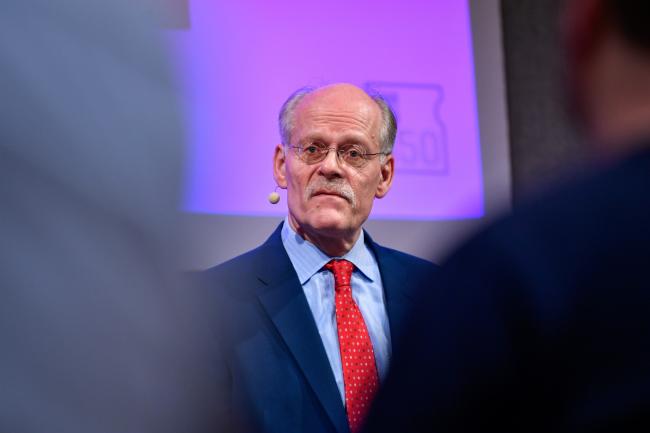(Bloomberg) -- Explore what’s moving the global economy in the new season of the Stephanomics podcast. Subscribe via Pocket Cast or iTunes.
A parliamentary review of the Swedish central bank law opened up for a greater focus on the real economy and financial stability, potentially easing the Riksbank’s focus on keeping inflation at target at all costs.
After almost three years of work, a bi-partisan committee late on Thursday released a preliminary report on its decisions, concluding that the bank should take heed of output and employment without setting aside its main mission of keeping “inflation low and stable.”
Nordea Bank AB said in a note that the review “appears to reign in the ‘inflation nutters’ and strengthen governance.”
“Clarifications to how much attention the Riksbank should pay to other variables than inflation is welcome, and long overdue,” Kristin Magnusson Bernard and Torbjorn Isaksson, analysts at Nordea, said in a note. “We believe it will make for more balanced decision-making and create valuable room for maneuver rather than being per se hawkish or dovish.”
The central bank has come under intense criticism over the past years as it unleashed unprecedented stimulus to keep inflation at target. The measures, which have included cutting rates deep below zero and buying up about half of the nation’s government bond market, have been blamed for depressing the krona and stoking instability.
SEB AB said in a note that the changes by the review means that “on the margin labor market/production will get a more prominent role.”
The review also concluded that it will cut the number of rate-setters to five from six, limiting the sway of Governor Stefan Ingves by removing his power to cast a tie-breaking vote. That will likely mean that the bank won’t work to find a replacement for First Deputy Governor Kerstin af Jochnick, who recently left. Members will also be limited to two terms.
“This is a clear signal that they don’t want a single person to dominate the Riksbank for too long a time,” SEB said.
The review called for taking the power away from the Riksbank to decide on the level of and what inflation measure it targets. That will now be decided on by the legislature, based on recommendation from the bank.
Set to be made public in November, the review also proposed that the Riksbank should act as a lender of last resort by providing liquidity to some financial companies. It said the bank will be allowed to borrow up to 5% of GDP via the debt office in foreign currencies, and additional reserves in case of a special need.
What Bloomberg’s economists say...
“The proposals clarify, among other things, the Riksbank’s responsibility for financial stability and this is welcome. The central bank is already allowed to take other factors than inflation into account when setting interest rates. A formalization nevertheless means the central bank may develop a less strict focus on inflation going forward.” Johanna Jeansson- Nordic economist
In an emailed comment, Riksbank spokesman Tomas Lundberg said the bank is looking forward to looking at the full review when it becomes public.
